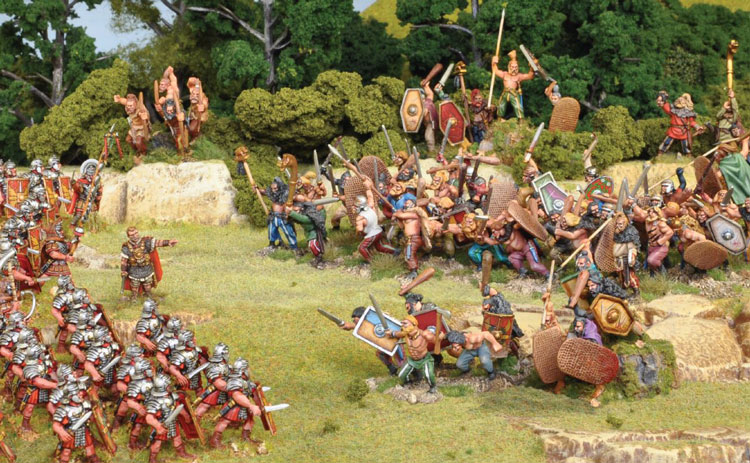

He knew exactly how to hit the Romans where it hurt the most. It was the perfect opportunity for an ambush.ĭuring his time in Rome, Arminius studied Roman military strategies. On top of that, they were marching through torrential rainfall, on muddy and slick ground, and not in fighting formation. The legions were formidable, but their fighting style was suited to wide, open plains, not the dark, claustrophobic German forest. This left only three for Varus, who on the way to the “rebellion” marched all of them through the Teutoburg Forest. However, just a few years before the Battle of the Teutoburg Forest, there was a revolt in the Balkans that forced the Empire to withdraw eight of those legions. In the previous months, Arminius had created an alliance of Germanic tribes and fabricated a rebellion to lure the Romans into unfamiliar territory and decimate them.īefore 6 CE, the Romans had eleven legions in Germania. Arminius was even given leave to rally support from the Roman-allied Germanic tribes. Varus was persuaded to march his legions into unfamiliar Germania to crush the supposed rebels. In the autumn of 9 CE, Arminius reported to the Roman commander in Germania, Quinctilius Varus, that a rebellion had broken out in northwest Germania. However, during those visits to the Germanic chiefs, Arminius was plotting with them to attack the Empire that had raised him. Because he was a German, Arminius was stationed in Germania, where he could communicate with the Germanic tribes on Rome’s behalf. Many of these soldiers were Cherusci tribesmen like himself. Despite being a barbarian, Arminius was treated well he acquired a military education and became a Roman citizen, even earning the command of his own forces. One of the Germanic tribes conquered by the Romans was the Cherusci, whose chief was forced to send his son Arminius to Rome as a hostage. The Romans thought that these tribes were under their control, but only a few short years later, these tribes would strike back at the Empire in the Teutoburg Forest. He sent his adoptive son Drusus to conquer the barbarian land that the Romans called Germania, and Drusus succeeded in subjugating Germanic tribes east of the Rhine. This arrangement, however, left the emperor Augustus unsatisfied. One of the Empire’s frontiers was the Rhine River, east of which were the “barbarian” Germanic tribes. Under Julius Caesar, the Roman Empire had conquered large swaths of Western Europe. Here are 8 things you didn’t know about the Battle at Teutoburg Forest. This battle changed the very course of Roman history. In the dark forests of Germania, three entire legions were wiped out in the span of a few days, by an enemy that the Empire didn’t even know existed. In the year 9 AD, the Roman Empire suffered a devastating military defeat.


 0 kommentar(er)
0 kommentar(er)
